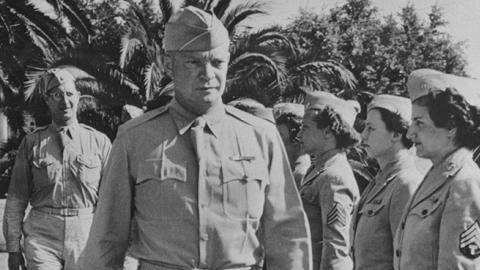p(firstLetter). While researching and writing my recent book, Ike’s Gamble, which tracks the evolution of President Eisenhower’s Middle East policy, a question nagged at me. What enduring lessons did Eisenhower, as the commander of the North Africa campaign (1942-1943) in World War II, learn from this, his first experience of the Arab world? By the time it came to sending the book off to the publisher, I still hadn’t found an answer. Robert Satloff, I can jealously say, has now given us one.
Satloff’s essay in Mosaic, “The Jews Will Have to Wait,” represents countless hours of research in primary sources in several languages, not to mention interviews conducted halfway around the globe. It shines a bright light on a little-known episode, which, Satloff claims, was far more consequential than we have realized. And his core conclusions are persuasive. Yes, we should indeed consider Operation Torch, the November 1942 Allied invasion of North Africa, to be the beginning of the story of American engagement in the Middle East. And yes, views about the Middle East that crystallized in the minds of American officials at that time did indeed influence United States foreign policy for years thereafter.
To read the full article on the Mosaic Magazine website, click here.

















